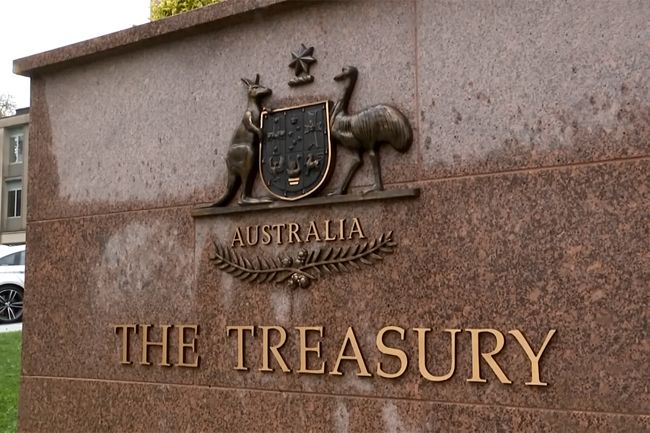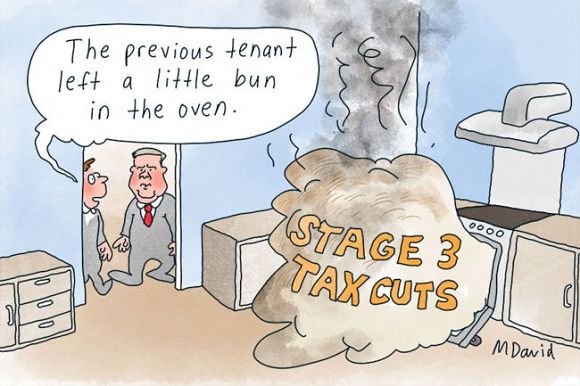With the cost of living and wealth inequality still plaguing our economy, reforms are in need for our taxation system to stabilise it. Dermot Daley offers some suggestions.
IT IS COMMONLY agreed that the big number-one spanner in the works of our economy is inflation. Inflation keeps inflating itself despite all the thoughts and prayers of the political classes. The Reserve Bank wields its Thor’s hammer of increasing interest rates but it’s not containing inflation and is making life harder for some.
Wasn’t it Einstein who observed that a definition of insanity might be to keep doing the same thing again and again in the hope of getting a different result?
Respected commentator John Hewson observed that ‘economics is not an exact science, but a difficult blend of science and art’. In practice, economics bears a relationship to science much like that between astrology and astronomy. The closest anyone has come to define the function of economics was Adam Smith in his ‘Wealth of Nations’, but back then, Smith was writing within his initial discipline as a social philosopher.
Many people think that the economy exists simply for them to make lots of money, either through exploiting the efforts of others or through manipulation of publicly owned resources, but most don’t seem to grasp that the economy falters when mass public consumers do not have enough money to put food on the table.
A stable economy underpins a healthy civilised society, which enables a popular political entity to provide defence, law and order, health, social services, education, transport, public housing, communications and utilities to serve the common good, so that the business of business can be conducted with a measure of objective certainty.
The proven democratic convention to fund such an ordered society has been to coordinate revenue gathering on the basis of “ability to pay” so that these institutions of civilisation can be delivered. The big threat to this process is when the fox seeks to control the henhouse and dominate the basket of revenue eggs.
The obvious solution to the ominous rise in inflation is to review this “ability to pay” and the first essential step to address and reform tax collection is to accept that the current system is broken. The second essential step in taxation reform is to ensure sufficient revenue to balance the books.
And the third essential step in taxation reform is to recognise hard work and enterprise equitably, without fear or favour and without fostering social division.
Some reforms can be achieved immediately. There is no justification for providing social welfare for the luck-wealthy while many less fortunate are under extreme duress. There is no justification for redistributing company-paid franking credits when those who own the shares already get dividends from their investment (in addition to having the right to sell the shares for cash at any time).
There is no longer any justification for capital gains evasion or for negative gearing write-offs as these “tools” were designed for a notably different economic climate. Importantly, there is no justification for “grandfathering” any of these obsolete concessions.
It is farcical that currently, a high-income earner can employ creative accountants and pay less tax than someone earning a 20th of their income. Practical tax reform must strip out duplicated and unnecessary levies, and it must simplify the system to be more easily understood by all taxpayers. Long-term structural reform can be achieved by agreeing that much of the body of regulation of tax assessment is not appropriate for the 21st Century.
The economy needs to work smarter, not harder.
The 2010 Tax Review by Ken Henry and his qualified team advocating strategic reform was ignored by both of the befuddled and compromised Red and Blue teams, so here are some suggestions from an outsider on where the taxation process might be simplified:
- remove all existing concessions, exemptions, deductions, income splitting and other minimisation loopholes and establish a blank template for a revised taxation strategy;
- remove the GST as this is a regressive system that works exponentially in favour of high-income earners at the collective expense of the working poor;
- introduce a 0.10 % tax on all financial transactions of more than $1,000 initiated within Australia, to be conducted and audited by commercial institutions for a flat fee;
- reset the tax-free threshold to $50,000;
- apply three simple levels of individual income tax (say, 10% for $50K to $180K; 20% for $180K to $580K; and 30% for $580K plus);
- apply a flat 10% tax on all avenues of non-salaried income (fringe benefits, interest and dividends, capital gains, all forms of superannuation, property rentals, lotteries, gambling, exchange rate hedging and so on);
- apply a comprehensive formula (matrix) for a corporations tax based on gross turnover, number of employees, physical location, nature of enterprise, origin of resources, defined market, transportation impact, industry training and so on;
- apply a tax on all religious groups as for any contemporary corporation;
- apply a national resources tax whereby 60% of the value of the resource (adjusted daily on stock market reporting) is retained by the Commonwealth (for redistribution to states), with failure to pay tax resulting in the withdrawal of access to the resource;
- apply a pollution tax based on volume, nature and impact of contamination and so on;
- clearly define work-related deductions specific to each industry;
- allow taxation exemptions only to legitimate charities and genuine not-for-profit NGOs;
- create an effective ATO policing unit to enforce tax obligations;
- audit and review taxation rules every five years; and
- keep the fox out of the henhouse!
(‘And so on’ in the dot points above means “all practical considerations included”.)
It will then become necessary to eliminate tax duplication across our three tiers of government.
Only a pathological optimist could believe that the current Red and Blue party classmates in Australia would have the courage, the vision or the integrity to carry out meaningful tax reform.
Perhaps Independents can deliver us from evil?
Dermot Daley is a fourth-generation Australian living in Victoria, who is now retired from construction project management.
 This work is licensed under a Creative Commons Attribution-NonCommercial-NoDerivs 3.0 Australia License
This work is licensed under a Creative Commons Attribution-NonCommercial-NoDerivs 3.0 Australia License
Support independent journalism Subscribe to IA.















